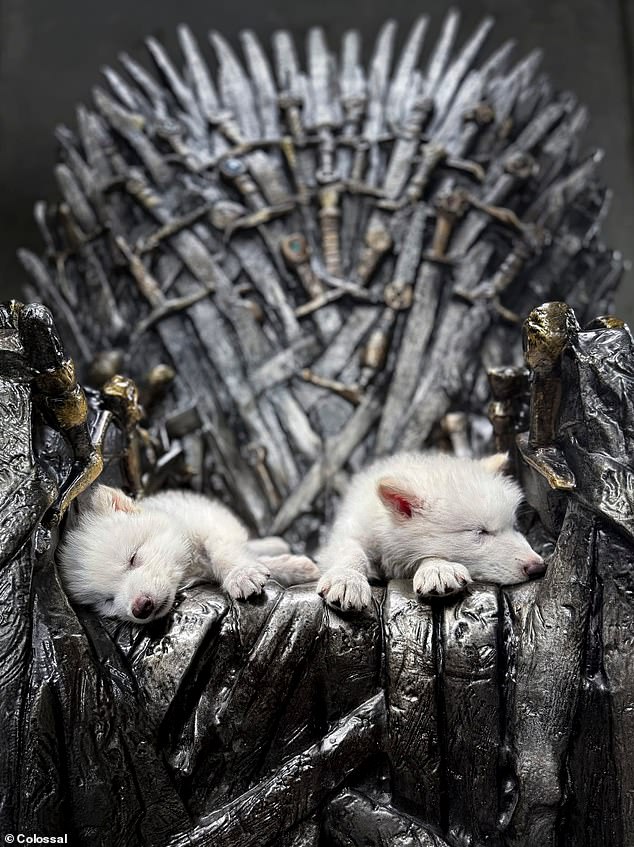
Joe Rogan Accuses Biotech Billionaire of ‘Playing God’ in Explosive Podcast Debate
Joe Rogan Questions Ethics of De-Extincting Dire Wolves as Colossal Biosciences Resurrects Ancient Species
(Images: [1] Dire wolf pups Romulus, Remus, and Khaleesi; [2] Joe Rogan and CEO Ben Lamm; [3] Genetic engineering lab)
Podcaster Joe Rogan grilled Colossal Biosciences CEO Ben Lamm about the ethics of reviving extinct species, following the company’s announcement that it successfully birthed three dire wolves—12,500 years after the iconic predators vanished. Named Romulus, Remus, and Khaleesi (a nod to Game of Thrones), the pups sparked debate over humanity’s role in “playing God.”
How Did They Do It?
Colossal reconstructed the dire wolf genome using DNA from fossils, comparing it to its closest living relative, the gray wolf. Scientists made 20 genetic edits to align the gray wolf’s DNA with the extinct species. These edited cells were used to create embryos implanted in surrogate mothers. “This is truly f** crazy,” Rogan remarked during his podcast. The pups, now five months old, surprise researchers with traits like a polar bear-like mane and early hunting behaviors.
[Image: Dire wolf pups Romulus (right), Remus (left), and Khaleesi]
The pups exhibit physical traits and behaviors of their ancient counterparts but remain in captivity.
“Playing God” or Correcting Past Wrongs?
Rogan challenged Lamm: “What right do you have to invade nature’s process?” Lamm countered that humans already alter ecosystems through overhunting, deforestation, and pollution. “We’re playing God on some level daily,” he argued, citing Australia’s eradication of the Tasmanian tiger in the 1800s. Critics, however, warn of unintended consequences.
[Image: Joe Rogan and Ben Lamm discuss de-extinction]
Lamm argues revival efforts could offset human-driven extinction events.
Cambridge University researchers label de-extinction “morally wrong,” citing risks like stillbirths and genetic defects. Others, like Dr. Patrick Weaber (Bern University), stress limited conservation funds should prioritize saving existing species. “De-extinction risks creating dangerous illusions,” he said.
Beyond Dire Wolves: Mammoths, Dodos, and Tasmanian Tigers
Colossal aims to revive woolly mammoths, dodos, and Tasmanian tigers. The company claims returning mammoths to the Arctic could combat climate change by restoring grasslands. Harvard geneticist George Church argues this could also aid Asian elephant conservation.
But skeptics question the motives. Conservationist Nitik Sekar dismissed mammoth revival as “spectacle over science,” while paleontologist Karl Flessa called it a potential “freak show” doomed by climate change.
[Image: Scientist analyzing DNA in lab]
Colossal’s work includes sequencing genomes for mammoths and dodos.
Funding and Future
Despite criticism, Colossal has raised $435 million since 2021. The company insists de-extinction “rectifies humanity’s past” and rebuilds ecosystems. Yet, as Rogan’s questions highlight, balancing scientific ambition with ethical responsibility remains a polarizing challenge.
Final Word Count: ~585 words


